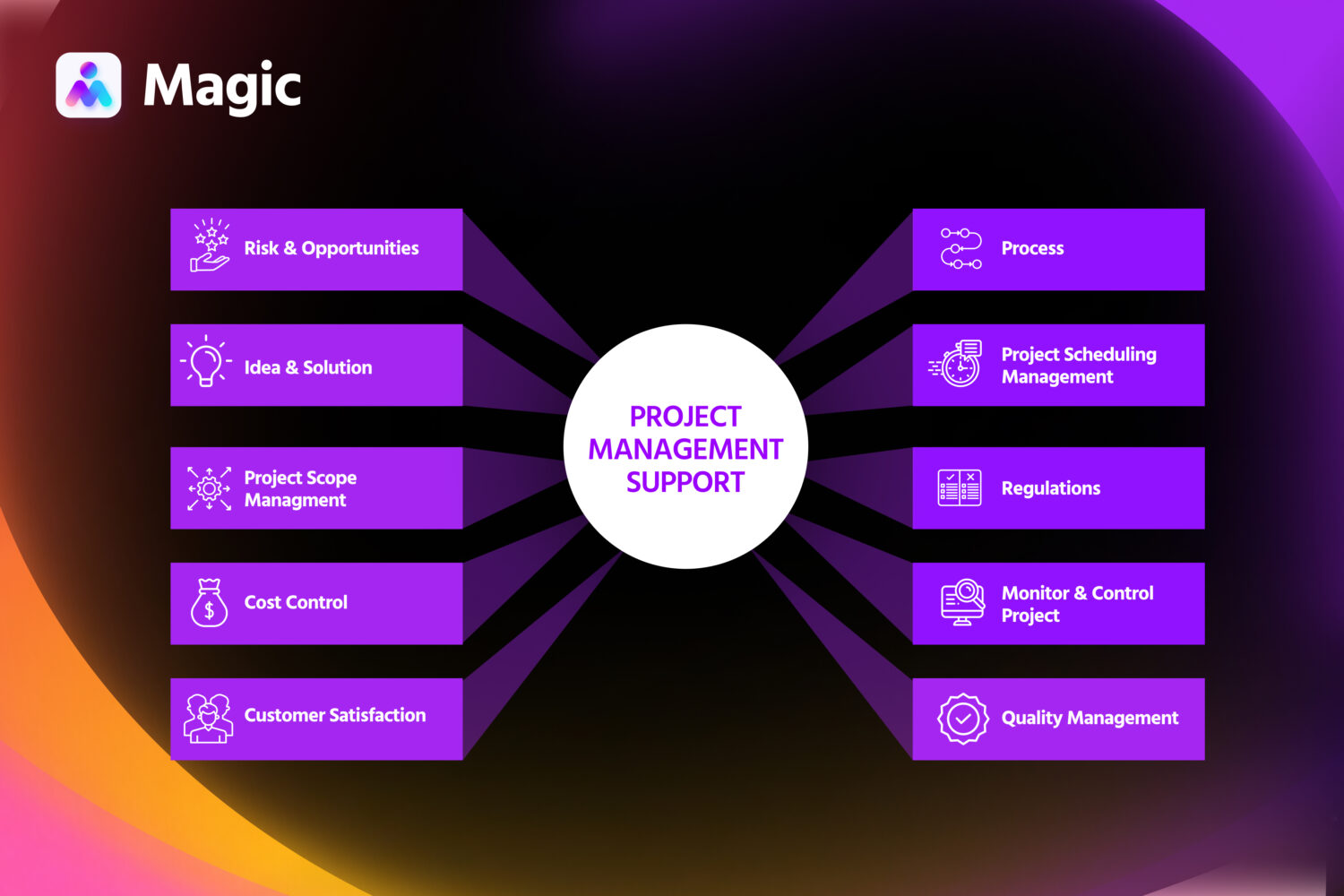Executive assistants have a proven track record of boosting business productivity, especially among the top brass. A good EA takes shoulders some of their boss’ work at a fraction of the cost, in effect multiplying an executive’s output.
But just as we go about work differently than we did a few years ago, the role of the EA has changed as well. If you’ve found yourself wondering, “What does an executive assistant do?”, you’re asking a pertinent question—and one we’re about to answer.
To give you a quick overview, an executive assistant provides support to one or more senior managers. This is typically administrative or clerical work, like handling schedules, managing messages, and liaising with lower level employees. The role also involves adapting to obstacles as they emerge, though. An EA gradually learns how their executive works and adapts their services to better support them.
In recent years, many EAs have shifted to remote operations. Much of their work remains the same but fulfilled virtually. Though of course, with new technologies emerging, EAs have also taken on new tasks that didn’t previously exist quite the way they do.
In this article, we’ll go over ten of the more common executive assistant responsibilities, so you can get an idea of the specific day-to-day tasks that an EA can take off your list.
- Executive assistants support senior managers through a wide range of tasks. They are distinguished by their ability to observe and adapt, improving their service as they learn more about the business.
- Many EAs now operate remotely, fulfilling many of the same roles they did before while adding new support in online channels.
- Their strength lies in versatility. The best EAs provide all-around support so that their clients are in the best possible position to achieve their objectives.
10 Executive Assistant Tasks to Delegate
Here are 10 of the most common tasks that an executive assistant handles. We’ve focused on how these roles are fulfilled remotely, since there has been a trend of taking EA work online—and when you keep that option open, you’ll find many more opportunities to recruit the talent you need.
Schedule Management
One of the major goals of an EA is to help an executive make the best use of their time. Naturally, their job typically involves managing their boss’ schedule. This includes setting an overall routine that stays mostly steady across weeks and months while balancing that with events and appointments as they arise day-to-day.
This also involves:
- Scheduling appointments and tasks to minimize interruptions or context-switching
- Prioritizing engagements based on urgency
- Studying an executive’s patterns to mitigate inefficiencies and maximize focus
- Making reservations, sending invites, and other appointment logistics
Communication Handling
Traditionally, EAs have also covered a lot of receptionist duties. With most communication going virtual, many now handle executives’ inboxes across multiple platforms, including email, instant messaging, and social media.
- Organizing messages by priority
- Summarizing main updates, flagging messages for personal review
- Deleting clutter, unsubscribing from newsletters or mailing lists
- Drafting messages for the executive to send or creating email templates
- Scheduling messages for sending
- Learn and adapt to an executive’s written communication style
Travel Coordination
Travel preparation is a long list of little tasks, and it’s all too easy to get tangled up in them. Still, rushing through travel preparations is asking for trouble: you could end up paying far more than you need to, or find yourself wasting time on poorly planned transportation arrangements.
EAs often take on travel preparations, ensuring that any time on a trip is well-spent while avoiding unnecessary expenses. A good EA pays keen attention to the trip’s objectives, their executive’s travel preferences, and other considerations.
- Research and compile options for lodging and transportation
- May look up dining and recreation as well, especially for hosting clients or partners
- Make bookings and reservations, fill out forms and applications as necessary
- Draft itineraries to minimize time wasted (e.g. spent in transit, layovers, etc.)
Meeting Coordination
A meeting can be a major imposition on not just an executive’s time, but that of all attendees. As such, it is important to keep meetings brief, purposeful, and productive. An EA can provide valuable support before, during, and after a meeting, ensuring that everyone involved gets as much out of it as possible.
Here are some ways an EA can be of service:
- Research on attendees or special guests
- Arrange the schedule and venue, and send invitations to attendees
- Prepare the agenda
- Research and draft presentation slides or speaker notes
- Take minutes of meeting
- Send out notes after the meeting
- Update team members’ to-do lists based on the discussion
Document Preparation
The smooth, secure transfer of information is crucial to any business’ functioning. EAs can help with this, helping you create, edit, or distribute documents while paying particular attention to brand integrity, information security, and confidentiality.
Rather than manage documents yourself, you can tell your EA what you need done. As they pay attention to your work habits and adapt to them, they’ll be able to prepare and send documents with minimal guidance.
- Format documents using company templates, or according to a branding guide
- Edit documents: copyedits, proofreading, or adherence to a style guide
- Organize digital files for quick access to important information
- Systematize backups and file security
- Send documents, such as memos or reports, to relevant parties
Information Research
Whether it’s looking up potential clients, canvassing venues, or catching up with industry news, an EA can help you broaden your knowledge through research and reports.
Crucially, when an EA understands your motives for research, they can provide you with supplemental information. This could include context, alternatives, or information on adjacent topics.
They can:
- Compare products, vendors, or services while considering your needs and nice-to-haves
- Canvas venues based on location, event requirements, and other preferences
- Compile information on industry news or other subjects of interest
- Contextualize their research based on your goals, constraints, and current perspective
Project Management Support
EAs also help executives manage the progress of projects. If properly briefed, it’s not uncommon for EAs to take charge of a project’s day-to-day coordination. Project management tends to rely on decisiveness and quick thinking, which is one reason EAs need to be insightful and quick-witted.
Specifically, here are a few things an EA can do for you:
- Prepare proposals, reports, and updates
- Track project timelines and deadlines
- Maintain project management platforms, trackers, or task lists
- Coordinate among different team members
- Assist in assigning employees and allocating resources
Task Delegation and Follow-up
Similarly, an EA can assist with ad hoc delegation, especially in short-notice cases outside of established project structures. It’s in these situations that an EA’s insight and familiarity with the company come to the fore.
They can:
- Identify the best candidates for a task, based on skill and availability
- Monitor the progress of tasks and look into them if they stall
- Act as point of contact for the executive and employees under their supervision
- Ensure accountability in delegated tasks
Relationship Building
Part of growing a business is building positive ties with vendors, clients, and other stakeholders. Since an executive can’t always stay on top of that, EAs can do so on their behalf. While remote EAs can’t literally give them a warm welcome in-office, they build relationships by other means. An EA’s communication skills and emotional intelligence go a long way in taking on these duties.
- Track important stakeholders’ preferences, achievements, birthdays, etc.
- Send congratulations, greetings, condolences as appropriate
- Arrange for corporate gifts or commemorative items for events
- Keep up courteous, timely communication with important counterparties
- Defuse tension and resolve conflict with parties inside or outside of the company
Problem Solving and Decision Support
Executive assistants can help identify issues early and resolve them. They can also serve as a second opinion when executives are weighing alternatives. As they work closely with executives, they’re likely to familiarize themselves with the company and its industry, while building ties with helpful contacts. They can leverage their own experience and networks to:
- Analyze complex problems swiftly
- Adapt to uncertain situations with creative problem-solving
- Provide valuable insights for informed decision-making
- Find contacts who can provide aid or talent
An EA’s Place in Your Company
On the surface, the bulk of an EA’s routine resembles that of a secretary, admin worker or virtual assistant. At the core of their profession, however, is the pursuit of proactive support. Some of the most essential executive assistant skills are soft skills. An EA’s perceptiveness, adaptability, and diplomatic ability all allow them to serve as an executive’s steady right-hand.
So while it’s useful to know what specific tasks an EA can handle, it’s just as important to remember that their strength lies in versatility. The best EAs provide all-around support, so that their clients are in the best possible position to achieve their objectives.
Get a Virtual EA with Magic
Magic can get a virtual executive assistant for you in as soon as seven days. Tell us what you need, and we’ll find the right EA for you. All our EA candidates are rigorously screened to ensure you get top-notch support.
Our virtual hiring services cover a range of other roles too. You can easily assemble a remote team to suit your objectives. Add or replace virtual assistants as needed, scaling to match the situation. Get started with Magic by booking a call with us today.









